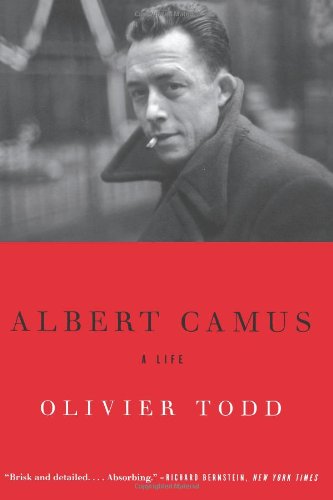Albert Camus: A Life
CHEAP,Discount,Buy,Sale,Bestsellers,Good,For,REVIEW, Albert Camus: A Life,Wholesale,Promotions,Shopping,Shipping,Albert Camus: A Life,BestSelling,Off,Savings,Gifts,Cool,Hot,Top,Sellers,Overview,Specifications,Feature,on sale,Albert Camus: A Life Albert Camus: A Life

Albert Camus: A Life Overview
In this vibrant, engaging biography of Albert Camus, the internationally acclaimed author of The Stranger, The Plague, and The Fall, French writer and journalist Olivier Todd has richly tapped resources never before available—personal correspondence, notebooks, public records, as well as exclusive interviews with Camus's family, friends, fellow workers, mentors, and lovers. What emerges is the study of a man caught in conflicts between family loyalties and his own passionate nature, between the call to political action and devotion to his art, between his support of the native Algerians and his identification with the forgotten poor whites. Exploring Camus's impoverished childhood in the Algerian city of Belcourt, his underground activities during the Occupation in Paris, the intrigues of the French literati who embraced him after the publication of his first novel, L'Etranger, Todd uncovers the solitary private man behind the mask of his celebrity. He shows us a writer isolated by his own success, crippled by the charms of women he could not resist, debilitated by the tuberculosis that did not kill him. The auto accident that did adds only to the ironies in the life of this international giant of twentieth-century literature.
Albert Camus: A Life Specifications
Olivier Todd's biography of Albert Camus matches its subject's depth by portraying the man as well as the moralist. Born in Algeria and raised in poverty by an illiterate mother, Camus never forgot where he came from. He made his name in Nazi-occupied Paris--publicly as the author of The Stranger and The Myth of Sisyphus, covertly as a member of the Resistance and editor of its newspaper, Combat--but he longed for the North African sun of his youth. During the years of crisis when Algeria struggled to break free from France, Camus alienated both colonialists and revolutionaries by supporting full equality for Arabs but denouncing terrorism. "I believe in justice," he told an Algerian heckler at a 1957 meeting he addressed in Stockholm after winning the Nobel Prize. "But I will defend my mother before justice." It is this preference for the concrete over the abstract that makes Camus such an appealing thinker. Todd's biography, which offers the most fully human depiction yet, is equally engaging.

